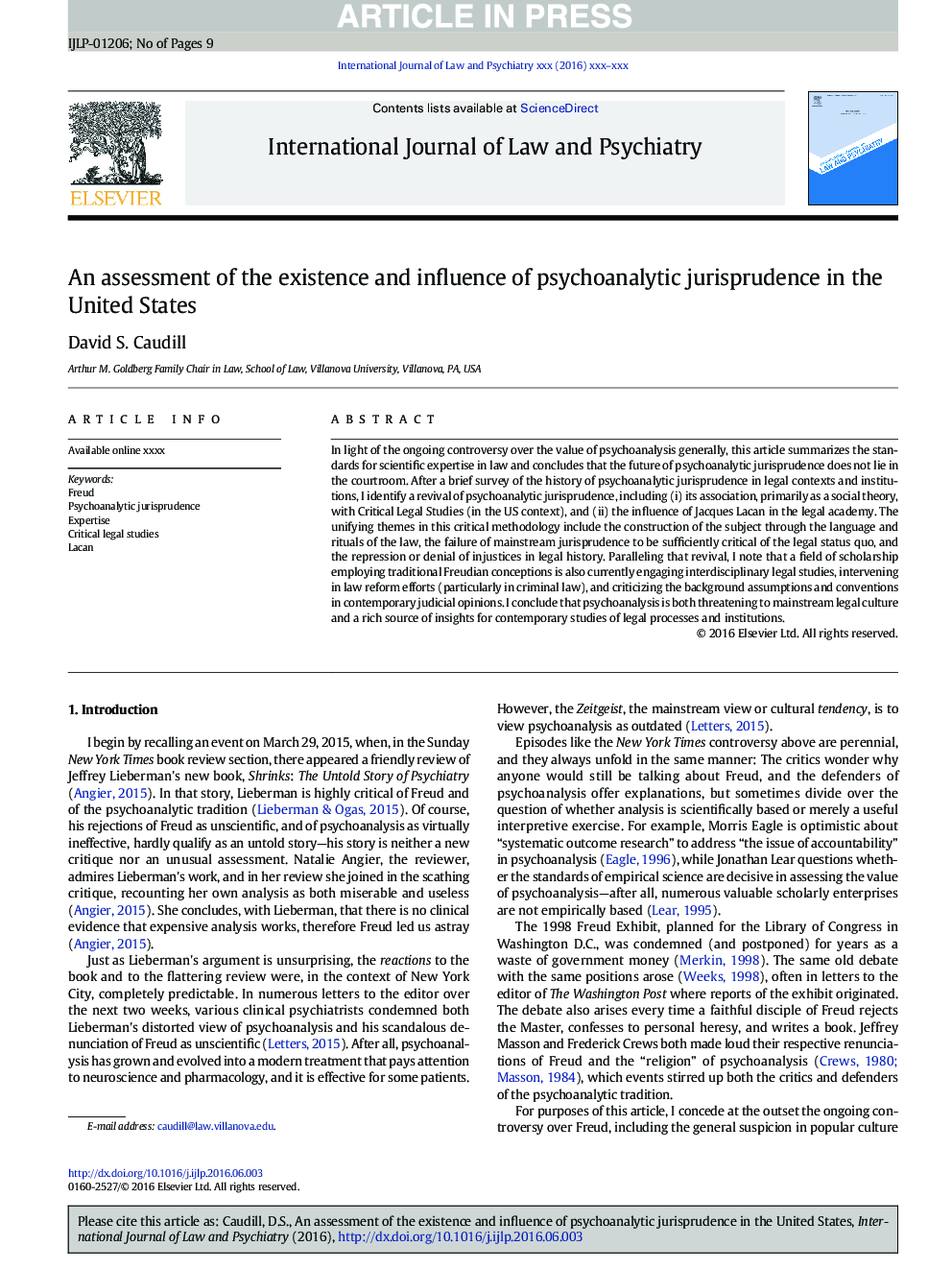| Article ID | Journal | Published Year | Pages | File Type |
|---|---|---|---|---|
| 4760539 | International Journal of Law and Psychiatry | 2016 | 9 Pages |
Abstract
In light of the ongoing controversy over the value of psychoanalysis generally, this article summarizes the standards for scientific expertise in law and concludes that the future of psychoanalytic jurisprudence does not lie in the courtroom. After a brief survey of the history of psychoanalytic jurisprudence in legal contexts and institutions, I identify a revival of psychoanalytic jurisprudence, including (i) its association, primarily as a social theory, with Critical Legal Studies (in the US context), and (ii) the influence of Jacques Lacan in the legal academy. The unifying themes in this critical methodology include the construction of the subject through the language and rituals of the law, the failure of mainstream jurisprudence to be sufficiently critical of the legal status quo, and the repression or denial of injustices in legal history. Paralleling that revival, I note that a field of scholarship employing traditional Freudian conceptions is also currently engaging interdisciplinary legal studies, intervening in law reform efforts (particularly in criminal law), and criticizing the background assumptions and conventions in contemporary judicial opinions. I conclude that psychoanalysis is both threatening to mainstream legal culture and a rich source of insights for contemporary studies of legal processes and institutions.
Related Topics
Health Sciences
Medicine and Dentistry
Forensic Medicine
Authors
David S. Caudill,
